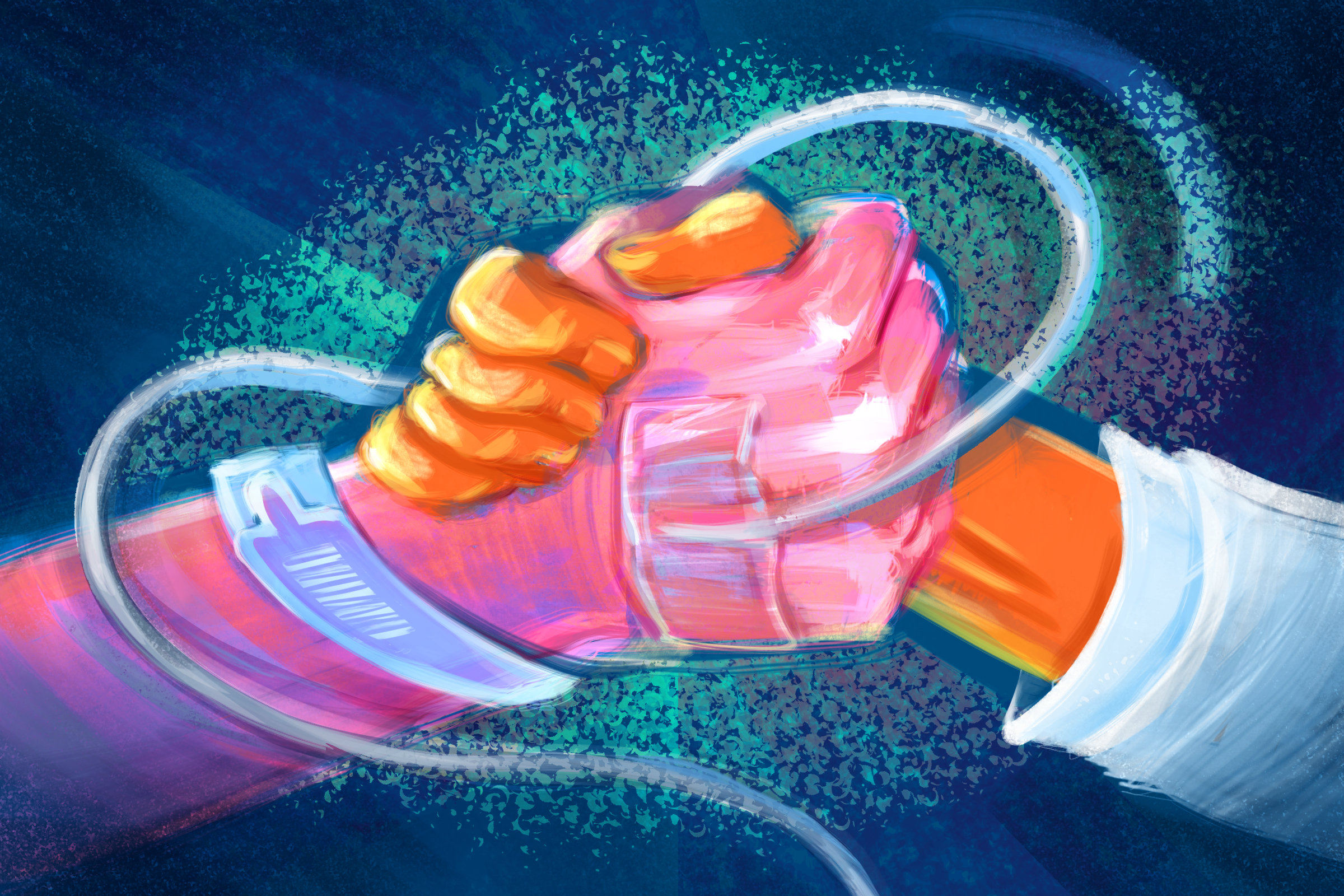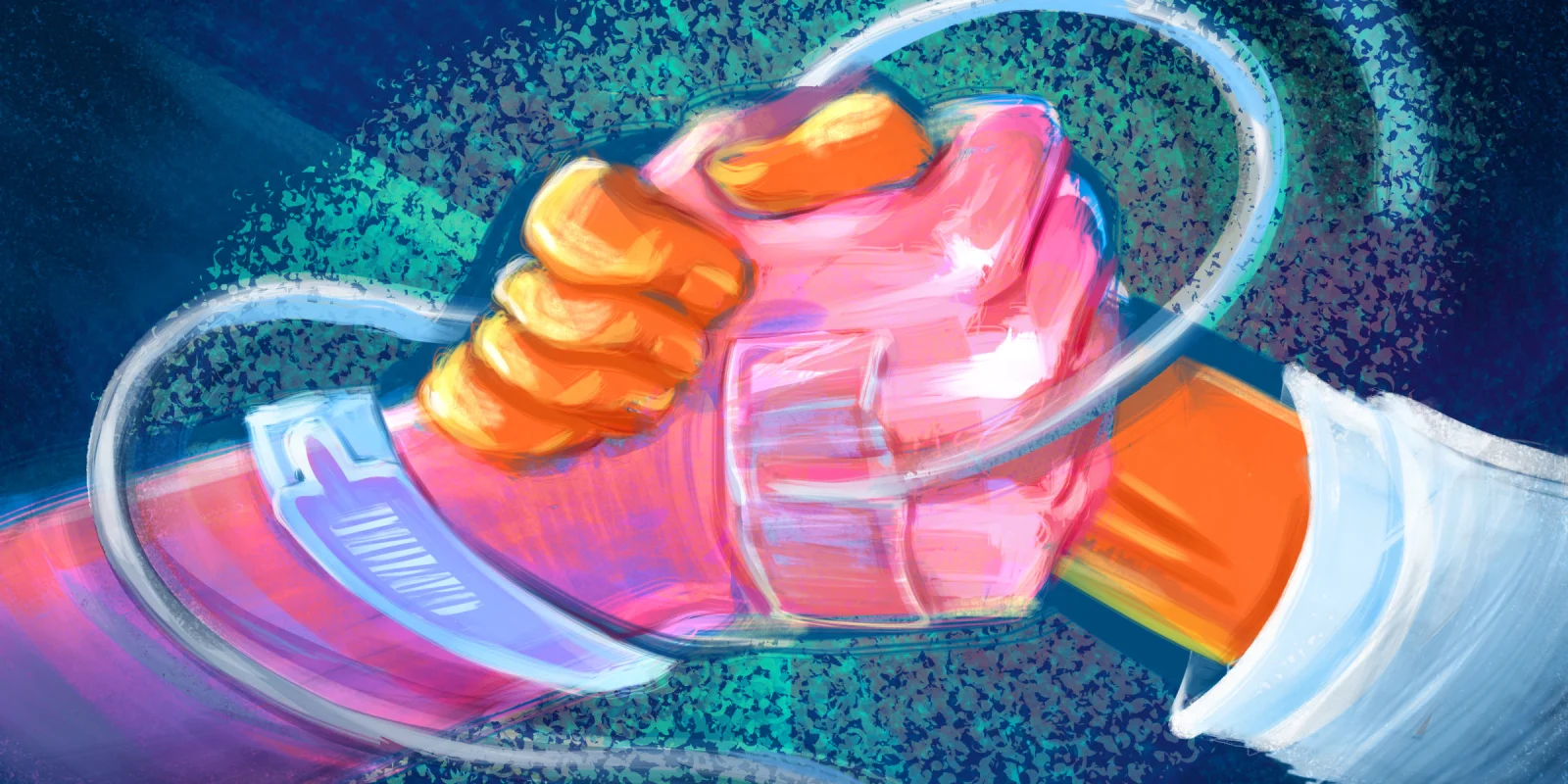
Compassion can hurt. It’s a cliche, but when I first decided to go to medical school — and, later, to practice physical medicine — I did so because I wanted to help people. I had little natural affinity for science, but I was inquisitive and wanted to see my patients recover and overcome their injuries. That’s always what the job meant for me; it’s why I stayed up nights in med school. It still drives me to come to the office every morning.
But despite all that, there are times when I feel as though compassion is kicking me in the chest. If you’ve ever worked in medicine, you’ve probably felt it; it’s the feeling when you walk into the exam room to see a 12-year-old kid who, according to your chart, was hit by a bus and has multiple fractures and a handyman’s box of screws and pins in his legs. You look at the kid and think: How is he going to walk again? How is he going to go to a movie with his friends? How is he going to play soccer, walk the dog, or do any of the other million things that he was doing without a second thought just a month ago?
In moments like that, part of you wants to disconnect. Part of you wants to stop caring, because being emotionally involved in the reality of the injury hurts. But then, I think about what it will mean for this kid to succeed. I think about how he will spend two weeks working with me to strengthen his body enough so that it can walk the dog, or run, or do every single one of those ordinary tasks. I’ll remember that the time we spend together is going to be pivotal for him. We are, the two of us, going to put the pieces of his life back together — and even after two years and thousands of patients, I’ll still remember how he smiled when he took that first step. I’ll remember the moment I opened a card that read: I remember how you helped me.
In rehabilitation, you know that every one of your patients has a shot at moving forward after tragedy because you helped them take the first step forward. You almost become friends for life. Disconnection isn’t worth losing that, and it isn’t worth the toll is takes on patients.
Separate studies have shown that both patients and providers alike regard a positive doctor-patient relationship as essential to quality care. Patients want to feel they are being understood, that the physician has genuine regard for them. While empathetic regard isn’t the only thing patients expect of providers — they also expect knowledge, a willingness to take the time to explain things, etc. — it is the most critical. Empathy is at the heart of the doctor-patient relationship; without it, there’s little to keep that bond alive, much less healthy.
And yet, medicine is a field that struggles with empathy. Researchers have established that physicians are specifically trained to distance themselves from their patients; the expression of emotions is discouraged in our training as “unprofessional.” As a result, physicians are less likely to engage with or reflect on their feelings. In the long term, this can lead to a higher risk of burnout and depression, and could have an impact on care quality overall. This negative habit can begin as early as medical school (for example, one student wrote, “I miss the person that I was so very much”).
Thankfully, empathy can be recovered, even taught. Several years ago, Dr. Helen Riess developed empathy training for doctors. The idea was to help them discern patients’ nonverbal and facial cues, and develop appropriate responses. The result? Doctors who went through the training were judged by patients to have become more attentive to their concerns than they had been previously. Care quality — or, at the very least, the perception of care quality — can thus improve.
So, yes, compassion hurts. Empathy stings. But every attempt must be made to develop and maintain empathy, as it is the very foundation of effective care — and doctors’ own emotional health.
Illustration by April Brust







